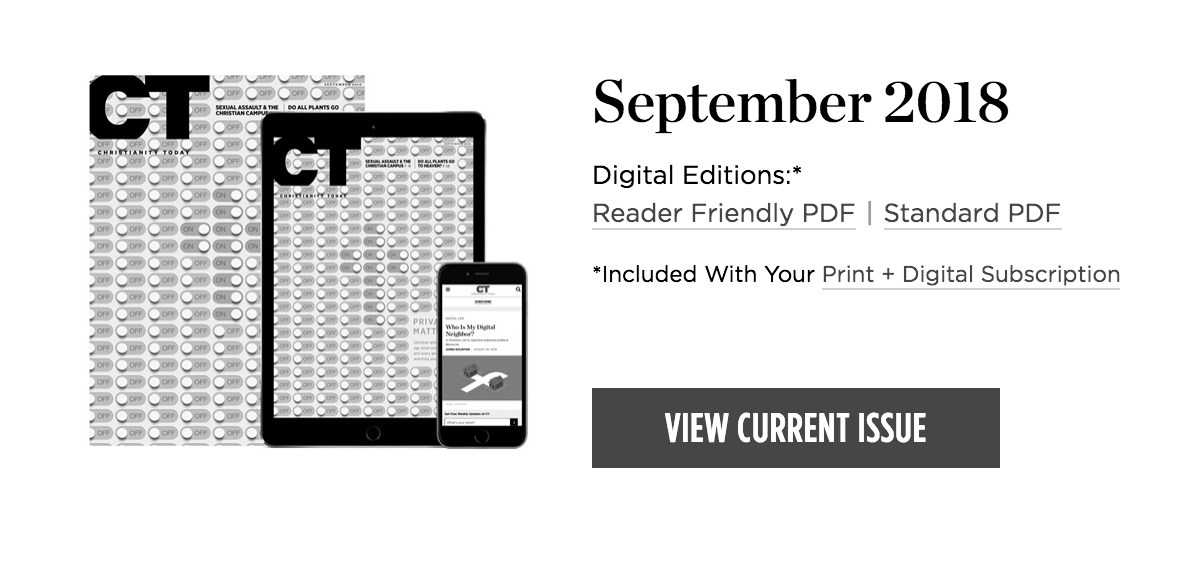My new privacy article with Christianity Today magazine is probably not what people expect. (1 of 3)
I've been thinking about "privacy" and technology and daily life for almost three years. So I was more than excited when Christianity Today editors asked if I'd pitch a story on thinking on privacy for Christians. That was back in 2017... it takes a while for these things... and now it's great to have the cover story for the September 2018 issue of Christianity Today.
Trouble is, I think a lot of folks aren't going to like it.
At least, they won't find what they're looking for.
My proposal is not a tech know-how article on how Alexa works or how to adjust some secret iPhone settings. With me as a gadget geek and originally a Microsoft-certified consultant, I could write this, but I didn’t .
It’s not a scare article that simply recites the threats that make us feel uneasy about privacy these days, although we certainly talk about them (I think of the felt threats in three categories: consumer (Target credit card hack), government (can the NSA break into your iPhone?), and social media (who am I sharing with?).
It’s definitely not a policy article that recommends new legislation to force Facebook or the government to do new things to “keep us safe.” I would support regulation here, and while I cover some of the legal basics to help us get a handle on the topic, I think law is a weak sparing partners against paradigmatic culture and tech shifts.
Really, my essay is an appeal to the church to notice the cultural moment and return to a deep truth she should know. It’s a ecclesiology of eschatological hope that has practical gospel implications. Or better said: the more the church looks like a vulnerable and open family, the more she'll look like good news for a digitally anxious world.
But nobody reads a privacy article to find that.
Well, not yet at least. My hope is that for many, it starts the idea. A different way of looking at the entire concept of "privacy." Maybe “loss of privacy” is more a statement about fear, relationship, culture, and disoriention than Supreme Court cases or Facebook algorithms. Recognizing the former gives us a lot more to hold on to when we search the scriptures for how to respond. The gospel community speaks to these things.
I think there will be a push back from many as impractical or naive or just all wrong. Particularly those who are strongly shaped into their Kantian worldview of individual rights. And I'd like very much to address real crisis and harm regarding privacy (which exists, I just think in much smaller quantities than the fear). But these I'll just have to expand on further (maybe here). For now. if anything, I think my assertions swing the conversation the right direction.
I invite your comments and thoughts (either directly to me or on Twitter). Enjoy.


